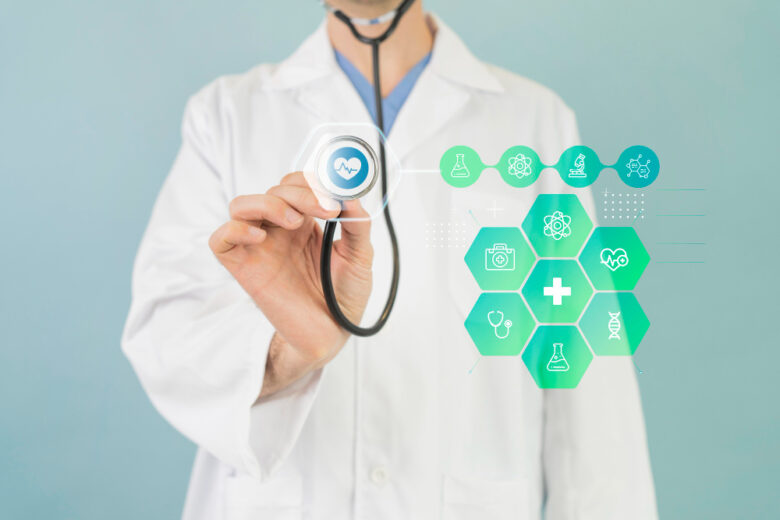In today’s rapidly evolving world, healthcare is undergoing a revolutionary transformation driven by innovation and technology. From advanced medical devices to groundbreaking treatment approaches, the healthcare industry is continuously introducing ingenious solutions to address pressing challenges and improve patient outcomes. In this article, we’ll explore 10 remarkable health care solutions that are reshaping the landscape of medical care and setting new standards for quality and accessibility.
Unveiling the Future: Introduction to Healthcare Innovation
The healthcare sector is witnessing an unprecedented wave of innovation, fueled by a combination of scientific breakthroughs, technological advancements, and a growing demand for more efficient and effective healthcare solutions. With the rise of personalized medicine, telehealth, and artificial intelligence, traditional healthcare models are being reimagined to better meet the needs of patients and providers alike.
Harnessing the Power of Technology: 10 Cutting-Edge Solutions
- Telemedicine Platforms: Telemedicine has emerged as a game-changer in healthcare delivery, allowing patients to access medical consultations and services remotely. With the help of telemedicine platforms, individuals can connect with healthcare providers in real-time, receive virtual diagnoses, and even undergo remote monitoring for chronic conditions.
- Artificial Intelligence in Diagnostics: AI-powered diagnostic tools are revolutionizing the way diseases are detected and treated. From analyzing medical images to predicting patient outcomes, AI algorithms are enabling healthcare professionals to make faster and more accurate decisions, leading to improved patient care and outcomes.
- Precision Medicine: Precision medicine takes a personalized approach to healthcare by considering individual variability in genes, environment, and lifestyle. By tailoring treatment plans to each patient’s unique characteristics, precision medicine aims to maximize therapeutic benefits while minimizing adverse effects, ultimately leading to better health outcomes.
- Remote Patient Monitoring Devices: Remote patient monitoring devices allow healthcare providers to track patients’ vital signs and health metrics outside of traditional clinical settings. These devices enable continuous monitoring of patients with chronic conditions, facilitating early detection of health issues and timely interventions to prevent complications.
- Blockchain Technology in Healthcare: Blockchain technology offers unprecedented security and transparency in healthcare data management. By creating decentralized, tamper-proof ledgers of patient information, blockchain enhances data privacy, interoperability, and integrity, paving the way for more efficient and secure healthcare transactions and processes.
- Robot-Assisted Surgery: Robotics-assisted surgery combines the precision of robotic technology with the expertise of skilled surgeons to perform minimally invasive procedures with unparalleled accuracy and control. With robotic surgical systems, surgeons can access hard-to-reach areas, reduce surgical trauma, and enhance patient recovery times.
- Virtual Reality Therapy: Virtual reality (VR) therapy is gaining traction as a non-pharmacological approach to pain management and rehabilitation. By immersing patients in virtual environments, VR therapy can distract from painful stimuli, promote relaxation, and facilitate physical and cognitive rehabilitation, offering new avenues for treating chronic pain and neurological disorders.
- Smart Healthcare Wearables: Smart healthcare wearables, such as fitness trackers and smartwatches, are empowering individuals to take control of their health and wellness. These devices monitor activity levels, sleep patterns, and vital signs, providing users with actionable insights to make informed decisions about their lifestyle and healthcare routines.
- 3D Printing in Medicine: 3D printing technology is revolutionizing medical manufacturing and customization. From prosthetics and implants to pharmaceuticals and tissue engineering, 3D printing enables the production of highly personalized medical devices and therapies tailored to individual patient needs, revolutionizing patient care and treatment outcomes.
- Augmented Reality for Medical Education: Augmented reality (AR) is transforming medical education and training by offering immersive, interactive learning experiences. Medical students and professionals can use AR applications to visualize complex anatomical structures, practice surgical procedures, and simulate medical scenarios, enhancing learning outcomes and clinical proficiency.
Embracing Innovation: Shaping the Future of Healthcare
The rapid pace of innovation in healthcare is reshaping the way we approach diagnosis, treatment, and patient care. By embracing cutting-edge technologies and innovative solutions, the healthcare industry has the potential to improve access, quality, and affordability of care for individuals around the globe. As we continue to push the boundaries of what’s possible, let’s remember that the ultimate goal of healthcare innovation is to enhance the well-being and quality of life for all. Together, let’s revolutionize healthcare for a healthier, brighter future.














